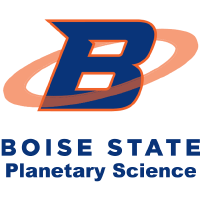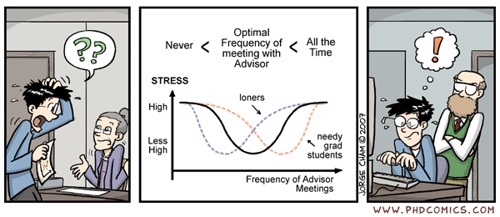 Our group conducts research in planetary astronomy, involving astrophysical models of planetary evolution and analysis of data from NASA space missions.
Our group conducts research in planetary astronomy, involving astrophysical models of planetary evolution and analysis of data from NASA space missions.
The work focuses on extrasolar planets, planets beyond our solar system, but we also conduct research on planets in our own solar system. You can read descriptions of recent research projects on the research page.
This page describes how to participate in the group.
Discrimination and Harassment Policy
One of our group’s highest priorities is to welcome anyone and everyone into the scientific community. To that end, in addition to recent scientific developments, we also regularly discuss the culture and climate of science and ways we can make them better.
No form of discrimination or harassment – gender-based, race-based, or sexual orientation-based – is tolerated, and group members are encouraged to speak up by contacting Prof. Jackson if they encounter any.
Attending Research Group Meetings
Our research group meets most Thursday afternoons at 4:30pm in MP301. The meetings usually last about an hour.
These meetings are open to anyone, and we’ve had students from local middle and high schools attend in the past, as well as other members of the public. You don’t have to be a physics major or even a Boise State student to attend, and you don’t have to make any commitment just to attend meetings. You’re welcome to attend casually.
We usually discuss research projects currently running in the group, as well as recent astronomical discoveries in the news. You can join the research group’s e-mail list by e-mailing Prof. Jackson.
Doing Research
I regularly take on students for research projects. You don’t *have* to be a physics major to work with me, but I have limited time to work with students, and so I have to give preference to physics majors.
If there is grant funding for a project, I can usually pay a student for their work, and students are often invited to attend major professional conferences as well.
Before I agree to take someone on, though, they must complete the following:
- Attend research group meetings regularly for at least one semester.
- Contact me to set up a one-on-one meeting to discuss research projects.
Completing these tasks is no guarantee I will bring you onboard, but you don’t have to have lots of experience or have taken advanced physics classes to do research with me.
Mostly, I need to see evidence of your commitment before I can commit to working with you.

Advisor-Advisee Expectations
If I do take you on as a research student, I promise to support your academic as well as scholarly success, and I expect advisees to do the same. The following list includes the commitments I make to advisees (but is NOT intended to be legally binding):
- I will respect your time. I will strive to answer e-mails within 24 hours (except over the weekends or holidays) and provide specific, helpful responses.
- Depending on how well you follow through on a project, I will gladly write reference letters to accompany applications to jobs, summer research experiences, graduate school, and other programs.
- Although I expect consistent productivity, I realize your first obligations are to your schoolwork and yourself. I will tailor my expectations to accommodate your academic and personal obligations.
- My research group is intended to be a safe, welcoming space for students of all stripes. Discrimination and disrespect will not tolerated.
- Although there are sometimes funds to support student research, funding is NOT guaranteed and may be withdrawn at any time. I will be sure to give you notice before funding is ended, however.
On the flipside, I expect research students to abide by the following minimum requirements:
- Stay in contact with me. If you encounter academic or life difficulties while you’re working for me, that’s OK. Just let me know, and we can adjust our plans. The absolute worst thing you can do is disappear without a trace.
- Bring a notebook to our meetings. No one’s memory is perfect, and you will forget things I ask you to do. So please take notes during our one-on-one meetings.
- After each one-on-one meeting, send me an e-mail summarizing the meeting. These e-mails are critical for me to keep track of what you’re doing. I also use these e-mails when writing reference letters – if you haven’t sent me these e-mails, odds are I won’t be able to write a very good reference letter.
- Attend group meetings regularly. I know you can’t always make it, and often class will interfere. But otherwise, I expect to see you at meetings most of the time (especially if I’m paying you).
- If, for any reason, you feel that our collaboration is not working out, please let me know. It is very common for students to switch advisors, and I will not take offense if you need to make a change.
Neither of these lists is exhaustive, but I will be clear about other expectations.
You can always e-mail me with questions.
